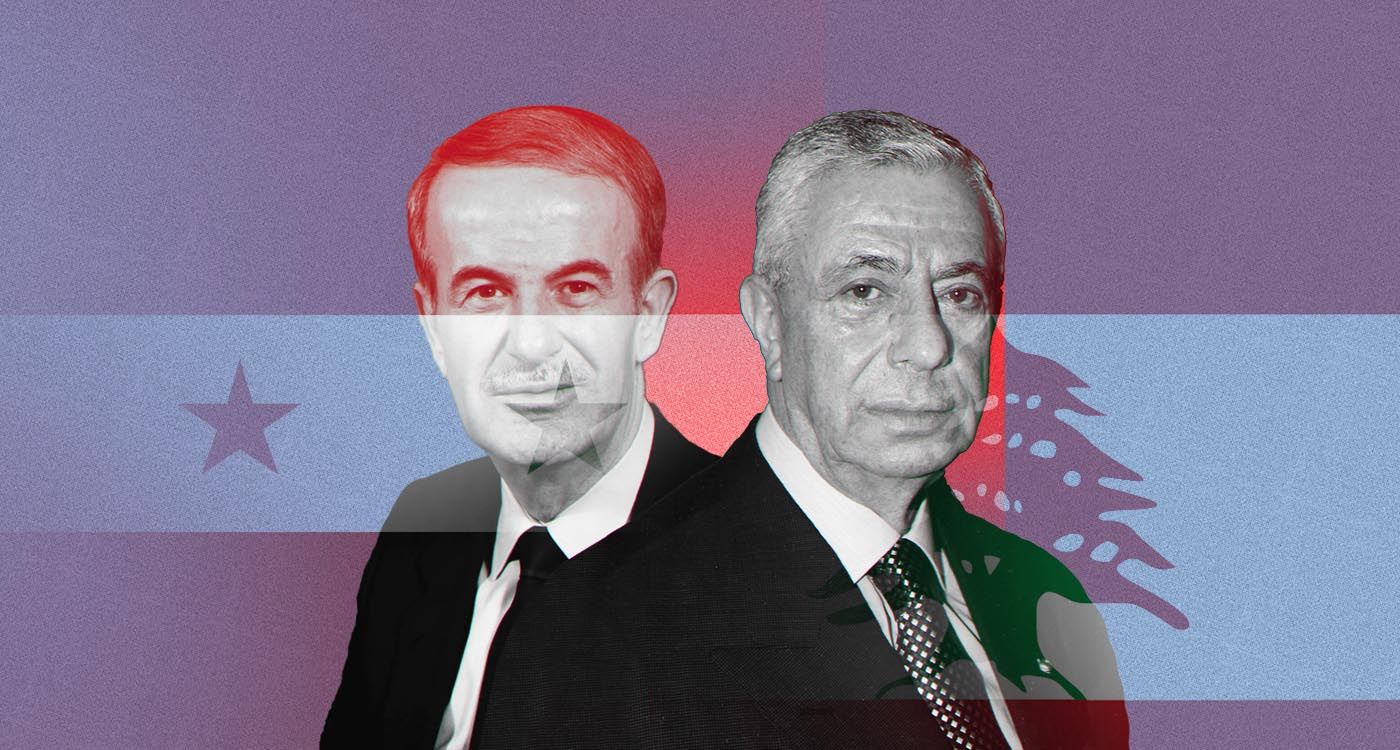
On May 22, 1991, the late Lebanese President Elias Hrawi and former Syrian President Hafez al-Assad signed the “Treaty of Brotherhood, Cooperation and Coordination,” which came into effect with the implementation of the Taif Agreement. The treaty, which governed Lebanon’s politics for more than 15 years and presumably safeguarded its national sovereignty, led to several agreements and protocols, including the establishment of the Syrian-Lebanese Higher Council.
After formal diplomatic relations were established between Lebanon and Syria in 2008, and ambassadors exchanged, numerous questions arose about the feasibility of maintaining the Syrian-Lebanese Higher Council, which symbolizes a dark era and represents a gateway to wastefulness. Nonetheless, the Higher Council continued to manage tasks that fall under the prerogatives of the ambassadors.
With the fall of Bashar al-Assad's regime, voices within Lebanon have increasingly called for dismantling all that the fallen regime represented, including the Higher Council. They underlined the need to find appropriate mechanisms to review all protocols and agreements signed between Lebanon and Syria during Assad’s rule, notably the “Treaty of Brotherhood, Cooperation and Coordination,” with the aim of eventually canceling it.
Many voices in Lebanon have also demanded that the Lebanese government move quickly to change the names of public facilities, roads and squares bearing names associated with the Assad regime era, such as the Hafez al-Assad Highway, the Hafez al-Assad Intersection (also known as the Kuwaiti Embassy Intersection in Lebanon) and the Basil al-Assad Cultural Center, among others.
The Higher Council was headquartered in Damascus, with Nasri Khoury serving as its Secretary-General since 1993. It groups the Presidents of the Republic, Speakers of Parliament, Prime Ministers and Deputy Prime Ministers in both contracting states. The council is tasked with formulating the general policy for coordination and cooperation in various fields and supervising its implementation. The decisions of the Higher Council are binding and effective in accordance with the two countries’ constitutional frameworks. The council also determines the subjects over which specialized committees are authorized to make decisions that become immediately enforceable, in line with constitutional norms and procedures in both countries or insofar as they do not conflict with these norms and procedures.
The Higher Council has been tasked with formulating coordination and cooperation on all levels—economic, social, trade, political and more. It is granted procedural powers that conflict with the constitution. It is also notable that the Lebanese members of the Syrian-Lebanese Higher Council hold no decision-making authority.
Furthermore, the council has been granted the authority to make binding and enforceable decisions as a general rule, whereas referring matters to the government or Parliament was made the exception.
Fundamental Violations in the “Treaty of Brotherhood, Cooperation and Coordination” Between Lebanon and Syria:
- The treaty made the Higher Council a decision-making body on numerous significant matters, which contradicts the Lebanese Constitution.
- The treaty rendered the council's decisions binding and enforceable, despite the council lacking any constitutional authority.
- The treaty granted the council's Secretary-General powers that constitute constitutional violations.
- The treaty’s content is inconsistent with the Lebanese Constitution, whereas international treaties must not contradict the constitution of the states that sign them.
- The treaty granted Syrian members of the Higher Council decision-making authority, in blatant violation of the Lebanese Constitution.
The task of canceling the “Treaty of Brotherhood, Cooperation and Coordination” does not fall within the jurisdiction of the Lebanese Parliament, as it cannot annul an international treaty. Instead, finding the appropriate mechanism to renegotiate the treaty is a constitutional responsibility of the Lebanese President and government.
Legally, can the Lebanese state withdraw from the agreements signed between the two countries and abolish the Syrian-Lebanese Higher Council? In November 2020, the council's Secretary-General, Nasri Khoury, stated that the council cannot be unilaterally dissolved, as it was not established by a Lebanese decision but rather by an internationally recognized and officially registered treaty. Cancellation, in general, requires the mutual consent of both parties. According to the Vienna Convention on the Law of Treaties of 1969, there are specific conditions that must be met for any state to unilaterally withdraw from a bilateral agreement. Lebanon is a member of the 1969 Vienna Convention, and Syria signed it in 1970.
The convention outlines reasons and conditions allowing a state to unilaterally withdraw from agreements, including impossibility of execution, force majeure, changes in circumstances, one party's domination over the other and violation of the treaty by one of the signatories.
There are currently 42 trade and economic agreements between Lebanon and Syria. Following the fall of Assad's regime, Lebanese economic bodies sent two letters to Speaker of Parliament Nabih Berri and caretaker Prime Minister Najib Mikati, urging them to review the treaty and reassess all bilateral agreements, including protocols, memoranda, programs and contracts, to ensure Lebanon’s interests are served equitably and soundly across all sectors, especially the economic and trade sectors.
The late MP Albert Moukheiber had highlighted the key violations in the “Treaty of Brotherhood, Cooperation and Coordination,” emphasizing the need for the government to work on amending it, especially by abolishing the permanent bodies established under the treaty, foremost among them the Higher Council and the General Secretariat, for their constitutional violations and incompatibility with diplomatic representation.
Amid these developments, the Lebanese government must shoulder its responsibilities by renegotiating the treaty with the new Syrian leadership. The ratification of these agreements requires a law passed by the Lebanese Parliament. Thus, a new law must be issued to introduce amendments or cancellations. This is where the role of Parliament comes into play.




Comments